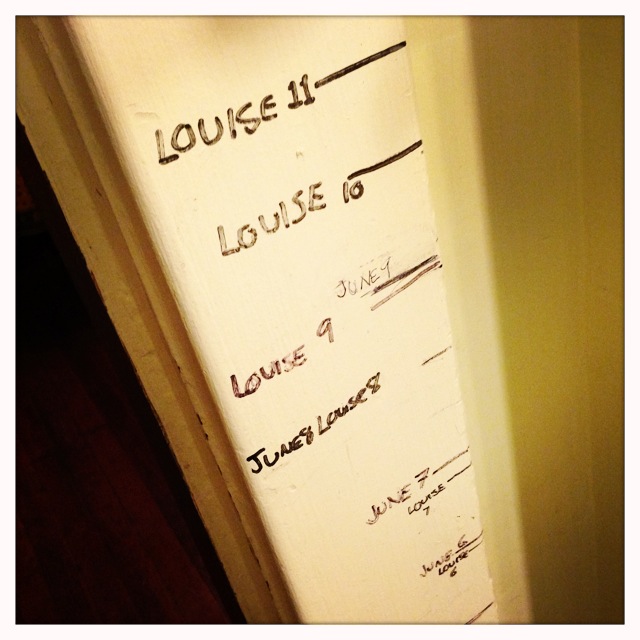Worship with God’s people on the Lord’s Day is not always exciting. It’s okay. You can admit it. Many times we walk out feeling encouraged. Sometimes we leave feeling refreshed. But there are those times–more often than not–that worship is … well … rather ordinary. We’ve gone to worship because we know that’s what God commands, but we don’t feel extremely different when we leave (except for exhaustion if you’ve had to wrestle with small children). We certainly don’t look any different. Nevertheless, as faithful Christians, we faithfully plod on Sunday after Sunday.
Somewhere in our hearts, there is this hankering for some excitement in worship. We want something different, something special that will thrill us and provide emotional motivation to be zealous throughout the week. Sometimes God provides this. There are times in worship when the fellowship of the saints seems particularly joyful, the sermon is especially penetrating and encouraging, and the Supper is a deeply emotional experience. Those times are special.
It must have been that way for Peter, James, and John as well as Jesus when they were on the mountain when Jesus was transfigured. Heaven and earth were visibly and audibly joined that day. The Spirit made his presence known in a cloud, Moses and Elijah showed up visibly for the prayer service, the Father spoke thunderously so that all could hear, and Jesus was dramatically transfigured. The disciples were scared witless, but it was an extraordinary time of worship; one they would never forget. But it was an extraordinary time of worship. It was an out-of-the-ordinary time of prayer; one that they hadn’t seen before this time and would rarely experience after this time. Extraordinary events like this set up ordinary worship that will take place from that time forward.
The same basic pattern happened at Sinai with Moses (a story that is alluded to in Jesus’ Transfiguration). Yahweh descended on the mountain in a cloud with thunder and lightning and all sorts of spectacular displays. After this, the children of Israel would build the Tabernacle and then settle into “ordinary worship.” They would sacrifice morning and evening, each Sabbath, every new moon, and at the annual appointed feasts.
In between these extraordinary displays of God’s presence and power was ordinary worship. No great thunder and lightning. No fear-provoking presence in the cloud that covered the top of a mountain like fire. Just ordinary worship with the priest at the Tabernacle. He was nothing really special. You probably grew up with him. You took different vocations as you became adults because he was descended from Aaron, but to you, he was always the guy you knew growing up. You went up to the Tabernacle, took your offering, and talked to your friend, the priest. He helped you with worship, gave you God’s Word, you said your goodbyes, and then you parted ways until next time.
In appearance, this was nothing like Mt Sinai. But the reality is that the extraordinary event at Mt Sinai was being acted out, explained, and applied at each of these ordinary encounters at the Tabernacle. You, as the worshiper, worshiped in faith; that is, you took God at his word that he was doing what he promised to do even if you didn’t feel it or see any immediate changes.
The same is true today. The worship established in Jesus’ extraordinary life, death, resurrection, ascension, and giving of the Spirit is acted out, explained, and applied at each of our ordinary worship services. We don’t see the events at Calvary, the glories of the transformed body of Jesus after the resurrection, or experience the powerful displays of the Spirit at Pentecost. We worship by faith. We are blessed because we do not see and yet believe (cf. Jn 20.29). The Lord is transfiguring us in our ordinary worship through his Word taught, the bread and wine, prayer, and the fellowship of the saints. Those who persevere in the discipline of worship, engaging themselves in worship, will see the results of this over time. But it will take time and patience just as health and growth do in your physical body. Not every meal is spectacular, and we certainly don’t see any immediate differences after the meal (except maybe for having to loosen up our belts). Nevertheless, the Spirit is working to take dead animals, dead fruits, and dead vegetables to give us life through them. He is working imperceptibly. But he is working. As you stick with the disciplines of eating over the years, you see the results. The results are measured over larger spans of time not minute by minute.
So it is with our ordinary worship. The Spirit is powerfully working, transforming us, sustaining and empowering us to make us more like Christ. We should be patient with his work and continue to worship in faith. Don’t jump ship looking for a thrill ride every Sunday that comes through special effects and clever rhetoric. Be content with the ordinary. There will be times that God will grant us those extraordinary times. But if he did that all that time, it wouldn’t be extraordinary, now would it.














